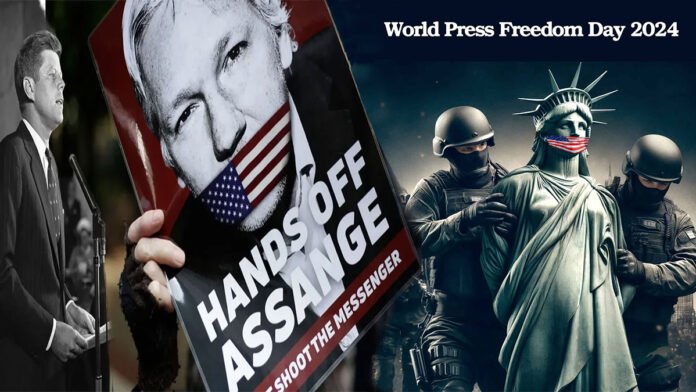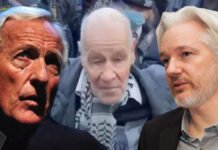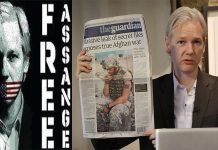Free Julian Assange: A Test of True Press Freedom
As we in the West have the audacity to celebrate World Press Freedom Day, Julian Assange languishes in Britain’s Belmarsh maximum-security prison, awaiting potential extradition to the U.S. This grim reality lays bare the utter hypocrisy of lauding press freedoms while one of the few publishers daring to expose corrupt power systems rots in a cell.
Make no mistake, the past decade has been a watershed era for disclosure of vital information in the public interest. However, that truth-telling has emanated from a handful of brave souls like Assange, risking everything to shine light on the malfeasance of governments and corporations alike.
Assange’s persecution is a particularly searing indictment. He has never been convicted of an actual crime, and yet remains locked away in a facility meant for terrorists and organized crime bosses. His transgression? Revealing hard evidence of American war atrocities and crimes against civilian populations. For committing this ultimate act of real journalism, he potentially faces 175 years in a U.S. supermax hellhole.
The fact that most major media outlets are headlining Press Freedom Day without equally elevating the rallying cry “FREE JULIAN ASSANGE” exposes just how deeply institutional rot has set in. These were the same corporate stenographers who once partnered with WikiLeaks to publish the bombshell “Cablegate” revelations in 2010, front-paging scandalous disclosures that upended diplomatic scandals worldwide.
Back then, The New York Times rightly heralded these leaks as providing “the unvarnished story of how the government makes its biggest decisions, the decisions that cost the country most heavily in lives and money.” Yet over a decade later, having profited from Assange’s work, this quisling media choir has turned on its source, dutifully echoing prosecutorial talking points about alleged sexual improprieties and computer crimes.
Only after years of public outcry did they finally unite, in a meek collective mewl, to beg for the “free press” advocate’s freedom from his gulag. But by then, the damage was done – their gamely parroting of official narratives damned Assange while rehabilitating their own access to established centres of influence.
The true injustice is that while this cabal gets to perform empty hosannas to free expression, a journalist telling vital truths about forever wars and oligarchic pillaging remains literally barred from practising his constitutionally protected profession. As Orwell warned, it is a world gone utterly upside down, where “War is peace, Freedom is slavery, Ignorance is strength.”
Until Julian Assange walks free, any West celebrations of press freedom from the media-political ruling class ring as hollow as a corpse’s laughter. They have soiled and betrayed the fundamental principles of journalism in service of power. For the sake of democracy’s survival, the people must fully repudiate these propagandists masquerading as the Fourth Estate. Only then can truth truly set us on the path to liberation.
The idea that around the world publishers are headlining Press Freedom Day without the headline ‘FREE JULIAN ASSANGE’ shows how controlled our mainstream media has become.
Where it all began.

Fourteen years ago, on November 28th 2010, five international media outlets – the New York Times, the Guardian, Le Monde, El País and Der Spiegel – published a series of revelations in cooperation with WikiLeaks that made the headlines around the globe.
“Cablegate”, a set of 251,000 confidential cables from the US State Department, disclosed corruption, diplomatic scandals and spy affairs on an international scale.
In the words of the New York Times, the documents told “the unvarnished story of how the government makes its biggest decisions, the decisions that cost the country most heavily in lives and money”. Even now in 2022, journalists and historians continue to publish new revelations, using the unique trove of documents.
For Julian Assange, publisher of WikLeaks, the publication of “Cablegate” and several other related leaks had the most severe consequences.
On April 12th 2019, Assange was arrested in London on a US arrest warrant, and has now been held for three and a half years in a high-security British prison usually used for terrorists and members of organised crime groups. He faces extradition to the US and a sentence of up to 175 years in an American maximum-security prison.
This group of editors and publishers, all of whom had worked with Assange, all of whom profited from Assange and WikiLeaks felt the need to publicly criticise his conduct in 2011 for allegedly aiding in computer intrusion of a classified database.
They headlined Assange on Alligations of sexual misconduct. All of them toed the government’s line irrespective of the truth. But after the charges disappeared only after twelve long years and a massive public outcry did they come together to plea for Julian Assange’s realise.
The free press has failed us miserably in its duty to defend the truth and expose the lies of power. While Julian Assange languishes in Belmarsh Prison, a symbol of truth, the media elites cosy up to the warmongers and the tyrants who seek to silence him. Shame on them for betraying their profession and their principles.
it is now while we face more of their forever wars we need a Free Press we can trust not a government propaganda machine whose only purpose is to tell us:
“War is peace.
― George Orwell, 1984
Freedom is slavery.
Ignorance is strength.”
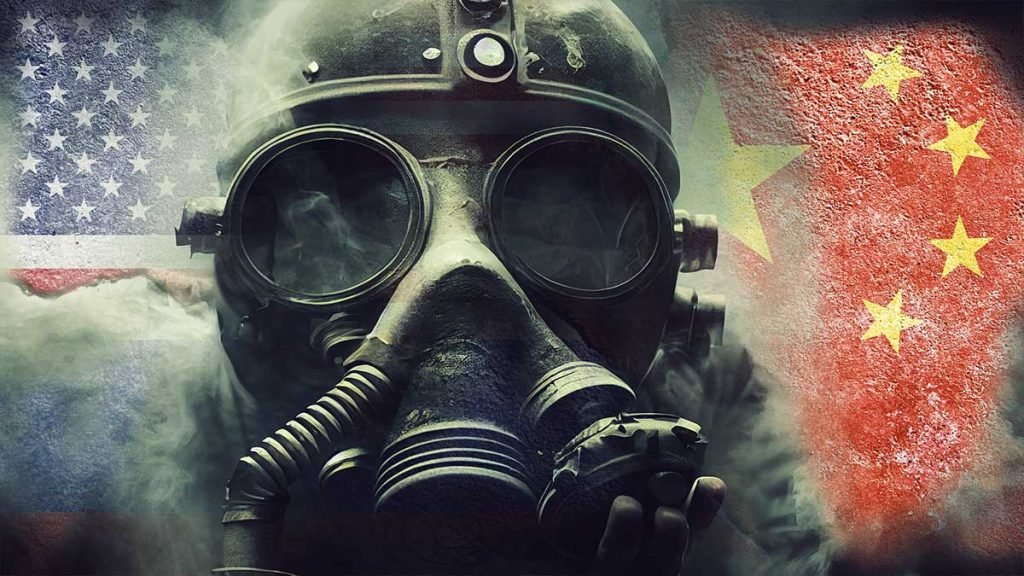
It has been through the disclosure of information by WikiLeaks, including collateral murder, the Afghanistan and Iraq War logs, Cablegate, the Guantanamo Bay files, the spy files and the global intelligence files, that has placed WikiLeaks and Julian Assange, at the top of international headlines. Headlines and stories that have helped the public hold governments to account for the things they do in our name.
Media outlets have had a feeding frenzy on the cables realised from WikiLeaks and Julian Assange specifically, they have extended their readership and some journalist built a repetition.
As a result of WikiLeaks’ disclosures, we have learned more than ever before about corruption and human rights abuse around the world, the nature of diplomacy, the military-industrial complex, the extent of misinformation about war, and the abuse of government power and public-private partnerships in traditional government functions, such as intelligence sharing, which are being contracted out to private corporations that are beyond the scope of regulatory control.
WikiLeaks has shown a courageous commitment to the finest traditions of journalism and to the role of the Fourth Estate in our democracy, which has not only challenged authority and power to achieve greater accountability but has also challenged the ‘old’ media to do better. This chapter reviews the phenomena of WikiLeaks and other forms of new media, as a part of the Fourth Estate, in modern democracy.
The traditional or ‘old’ media has always operated on leaks and journalists, editors and publishers have relied on the protections afforded them under laws protecting free speech.
Assange and WikiLeaks did everything journalists should do by finding out important information about US government misdeeds and handing it over to the public
The media have been cowed…

But the political and legal responses to the success of internet publisher WikiLeaks in the past few years have called into serious question the legal regimes related to the disclosure of information, including protections related to freedom of speech and the press, protection for sources and whistleblowers, the alleged need for confidentiality in government, and the justification for concomitant limitations upon freedom of information and transparency.
Astonishingly, British and American commentators are in a state of denial when it comes to seeing that what happened to Assange could happen to them. They argue bizarrely that he is not a journalist, though the Trump administration implicitly accepted that he is a journalist since it was pursuing him for journalistic activities. The motive is openly political, one of the absurdities of the hearing being the pretence that Trump-appointed officials provide a reliable and objective guide to the threat to the US posed by the WikiLeaks revelations.
Of course, there was hope Biden would pardon Assange but again Biden is more for war than most US presidents and a free Assange would be extremely problematic to Bidens war administration.
Heros of the people Julian Assange, Chelsea Manning, Edward Snowden.
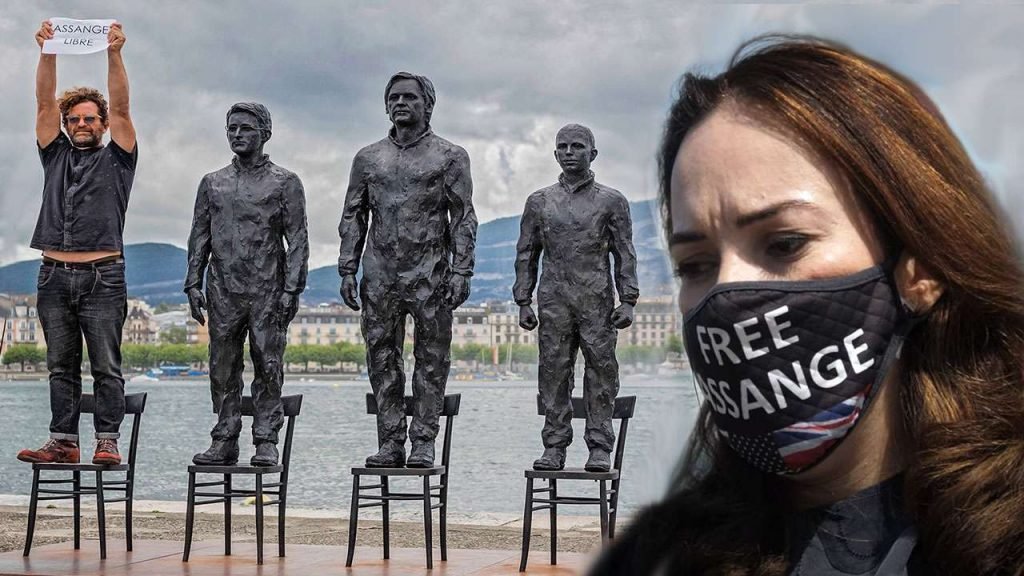
On April 11, Julian Assange was taken into custody outside of the Ecuadorian Embassy in London, ending his seven-year isolation there. He was arrested by British authorities, and the United States has filed an extradition warrant. He faces charges of conspiring to hack government computers.
This is a politically-motivated arrest due to his exposure of American atrocities and crimes. His arrest is an affront to liberty and indicative of the reach and power of the deep state.
Assange has been indicted in the U.S. on 18 charges over the publication of classified documents. Prosecutors say he conspired with U.S. Army intelligence analyst Chelsea Manning to crack a password, hack into a Pentagon computer and release secret diplomatic cables and military files on the wars in Iraq and Afghanistan.
It really doesn’t matter how they dress the extradition charge, the reality: is ‘its revenge for publishing and Assange is now damned’.
Assange exposed and embarrassed ‘FOR THAT‘ he must be punished.
The concept of secrecy for “national security” has been used by authoritarians and despots to justify violations of civil rights and liberties for millennia. Julian Assange is guilty of the crime of exposing the unconstitutional dealings of the United States’ government. Assange exposed videos of U.S. Apache attack helicopters killing unarmed civilians, including two Reuters journalists.
The U.S. military denied culpability. WikiLeaks revealed that the U.S. military would regularly hand over detainees to the Iraqi military, knowing they would be tortured. Wikileaks revealed that the State Department asked diplomats to spy on United Nations officials, including the Secretary-General. The U.S. knew that ex-president of Afghanistan Hamid Karzai regularly released drug dealers with political connections. These are some of the milder things that Wikileaks revealed to the public. You can see the raw leaks at WikiLeaks.org. Assange has been condemned as a terrorist by public officials because he threatens their job security by exposing abuses and atrocities that are unpalatable to the public.
Don’t shoot the messenger

The arrest of Assange has widespread implications. Ben Wizner of the American Civil Liberties Union said that any prosecution by the United States of Mr Assange for WikiLeaks’ publishing operations would be unprecedented, unconstitutional and would open the door to criminal investigations of other news organizations. People can be arrested because they expose the tyrannical actions of the U.S. government. Actions that have not been approved by the public. Actions that, if done to Americans, would lead to massive public outcry. Actions that are repugnant and antithetical to our concept of inalienable rights and liberties. We have to seriously consider the powers we give to the government if they are allowed to conduct themselves in such a secretive and criminal way.
Is Assange a flawless hero? Absolutely not. Credible arguments could be made about his associations with Russian political figures. Assange has a noticeable tendency to target the United States, but in that, they make themselves such an easy target. Assange may not have revealed the same actions of interest that have been committed by other states but that could be due to the flow of information and the whistleblowers’ policies of some less liberal countries that do not hold such freedoms as the first amendment in their civil rights.
Does this disqualify his potency as a journalist and advocate for First Amendment rights? Absolutely not.
Assange argues he was acting as a journalist entitled to First Amendment protection and says the leaked documents exposed U.S. military wrongdoing. Among the files published by WikiLeaks was video of a 2007 Apache helicopter attack by American forces in Baghdad that killed 11 people, including two Reuters journalists.
This embarrassment, this ugly face of war is why America will have its revenge.
The footage of the July 2007 attack was made public in a move that angered the Pentagon, it had drawn up a report identifying the whistleblower website as a threat to national security. The US Defence Department was embarrassed when that confidential report appeared on the Wikileaks site alongside a slew of other military documents.
The release of the video from Baghdad also comes shortly after the US military admitted that its special forces attempted to cover up the killings of three Afghan women in a raid in February by digging the bullets out of their bodies.
The video of the Baghdad attacks was recorded on one of two Apache helicopters hunting for insurgents on 12 July 2007. Among the dead were a 22-year-old Reuters photographer, Namir Noor-Eldeen, and his driver, Saeed Chmagh, 40.
The Pentagon blocked an attempt by Reuters to obtain the video through a freedom of information request. Wikileaks director Julian Assange said his organisation had to break through encryption by the military to view it.
In the recording, the helicopter crews can be heard discussing the scene on the street below. One American claims to have spotted six people with AK-47s and one with a rocket-propelled grenade. It is unclear if some of the men are armed but Noor-Eldeen can be seen with a camera. Chmagh is talking on his mobile phone.
One of the helicopter crew is then heard saying that one of the group is shooting. But the video shows there is no shooting or even pointing of weapons. The men are standing around, apparently unperturbed.
The lead helicopter, using the moniker Crazyhorse, opens fire. “Hahaha. I hit ’em,” shouts one of the American crew. Another response a little later: “Oh yeah, look at those dead bastards.”
One of the men on the ground, believed to be Chmagh, is seen wounded and trying to crawl to safety. One of the helicopter crew is heard wishing for the man to reach for a gun, even though there is none visible nearby, so he has the pretext for opening fire: “All you gotta do is pick up a weapon.” A van draws up next to the wounded man and Iraqis climb out. They are unarmed and start to carry the victim to the vehicle in what would appear to be an attempt to get him to hospital. One of the helicopters opens fire with armour-piercing shells. “Look at that. Right through the windshield,” says one of the crew. Another responds with a laugh.
Sitting behind the windscreen were two children who were wounded.
After ground forces arrive and the children are discovered, the American air crew blame the Iraqis. “Well it’s their fault for bringing kids into a battle,” says one. “That’s right,” says another.
Initially, the US military said that all the dead were insurgents. Then it claimed the helicopters reacted to an active firefight. Assange said that the video demonstrated that neither claim was true.
“Why would anyone be so relaxed with two Apaches if someone was carrying an RPG and that person was an enemy of the United States?” he said. “The behaviour of the pilots is like a computer game. When Saeed is crawling, clearly unable to do anything, their response is: come on buddy, we want to kill you, just pick up a weapon … It appears to be a desire to get a higher score, or a higher number of kills.”
Ten years later…
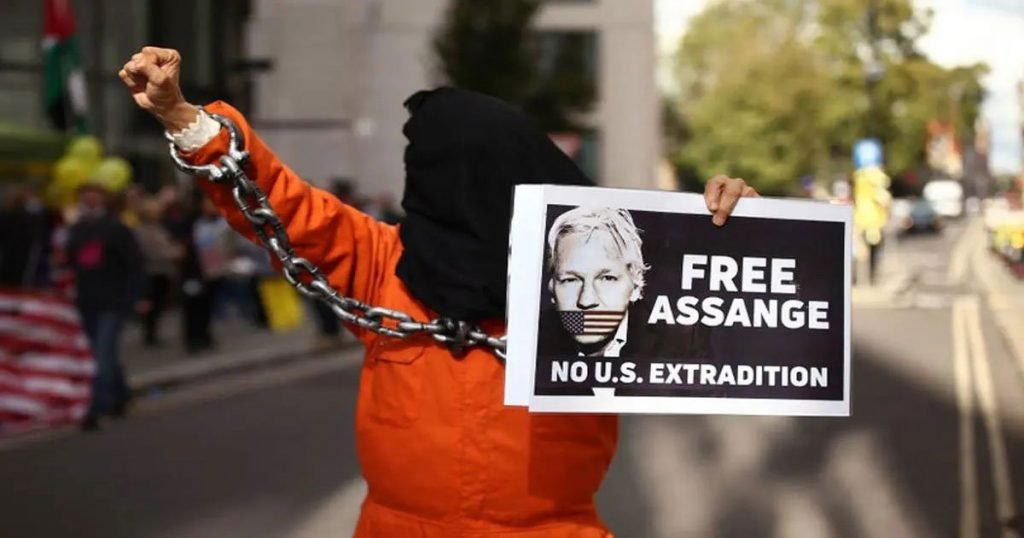
In an Old Bailey courtroom in London over the past months, lawyers for the US government have sought the extradition of Assange to the US to face 17 charges under the Espionage Act of 1917 and one charge of computer misuse. At the heart of their case is the accusation that in leaking a trove of classified US diplomatic and military cables in 2010, Assange and WikiLeaks endanger the lives of US agents and informants.
One of the many peculiarities in this strange case is that the evidence for any such thing is non-existent. The Pentagon has admitted that it failed to find a single person covertly working for the US who had been killed as a result of the WikiLeaks disclosures. This failure was not for lack of trying: The Pentagon had set up a special military task force, deploying 120 counter-intelligence officers, to find at least one death that could be blamed on Assange and his colleagues but had found nothing.
Other allegations against Assange put forward by the lawyers for the US government are similarly flimsy or demonstrably false, yet he is still in real danger of being sent to a maximum security prison in the US after the court makes its ruling on 4 January. Once there he faces a sentence of up to 175 years and, whatever the length of his incarceration, he is likely to spend it in solitary confinement in a tiny cell.
The Assange case creates a precedent that mortally threatens freedom of the press in Britain. If Assange is extradited then any journalist who publishes information that the American authorities deem to be classified, however well-known or harmless it may be, will risk being extradited to face trial in America. The US secretary of state, Mike Pompeo, says that non-Americans like Assange do not enjoy First Amendment rights to free expression.
The outcome of the Assange extradition hearing is a crucial tipping point which will tell if Britain and the US go further down the same path towards “illiberal democracy” as Turkey, Hungary, Brazil, India and the Philippines. What Assange and WikiLeaks did – obtaining important information about the deeds and misdeeds of the US government and giving that information to the public – is exactly what all journalists ought to do.
JOHN F. KENNEDY, “ADDRESS: THE PRESIDENT AND THE PRESS”
“For we are opposed around the world by a monolithic and ruthless conspiracy that relies primarily on covert means for expanding its sphere of influence…”
John F. Kennedy made a speech 10 days before he was assassinated, it appears to expose a secret society, working through the world, a New World order, and as a result of that speech, he was assassinated.
Scary stuff! If only it were true.
The speech was a carefully edited version of a speech he gave 2 years earlier to the Newspaper Publisher’s Association, in which he called out for the press to try to use a little self-restraint when reporting on things that might be sensitive to national security.
Here is his speech in full, it really is a great speech and worth listening to in full:
What’s amazing about the speech, is that he treats the press with utmost respect and says that he would never consider setting up a government office to control the flow of news.
In another part of the speech, he spells out the duty the press has to inform the people: “And that is our obligation to inform and alert the American people—to make certain that they possess all the facts that they need, and understand them as well—the perils, the prospects, the purposes of our program and the choices that we face.”
And because the duty is so important, it’s the only industry protected by our Constitution: “Without debate, without criticism, no Administration and no country can succeed—and no republic can survive. That is why the Athenian lawmaker Solon decreed it a crime for any citizen to shrink from controversy. And that is why our press was protected by the First Amendment—the only business in America specifically protected by the Constitution—not primarily to amuse and entertain, not to emphasize the trivial and the sentimental, not to simply “give the public what it wants”—but to inform, to arouse, to reflect, to state our dangers and our opportunities, to indicate our crises and our choices, to lead, mould, educate and sometimes even anger public opinion.”
Kennedy talks about the repugnant nature of secrecy in a Free Society
The very word “secrecy” is repugnant in a free and open society; and we are as a people inherently and historically opposed to secret societies, to secret oaths and to secret proceedings.
We decided long ago that the dangers of excessive and unwarranted concealment of pertinent facts far outweighed the dangers which are cited to justify it. Even today, there is little value in opposing the threat of a closed society by imitating its arbitrary restrictions.
Even today, there is little value in insuring the survival of our nation if our traditions do not survive with it. And there is a very grave danger that an announced need for increased security will be seized upon by those anxious to expand its meaning to the very limits of official censorship and concealment.
It is at this point we can take away the difference between leaking state secrets and the dirty secrets of state when war crimes have been committed and attempted to cover up.
That I do not intend to permit to the extent that it’s in my control. And no official of my Administration, whether his rank is high or low, civilian or military, should interpret my words here tonight as an excuse to censor the news, to stifle dissent, to cover up our mistakes or to withhold from the press and the public the facts they deserve to know.
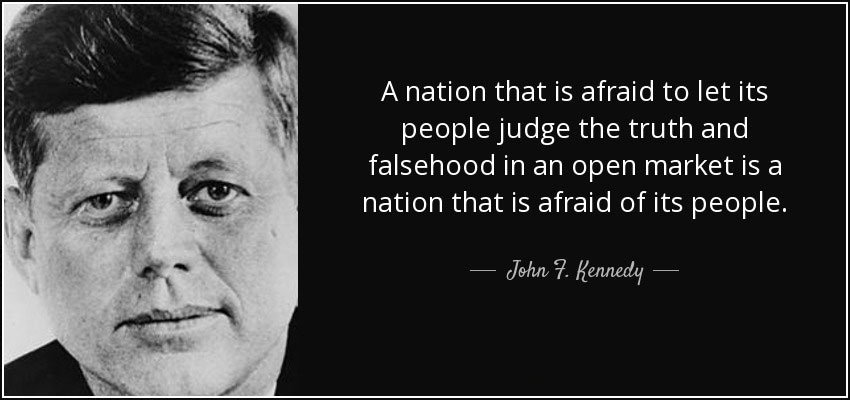
“A nation that is afraid to let its people judge the truth and falsehood in an open market is a nation that is afraid of its people.”-former US President John F. Kennedy
The lawsuits facing Assange and WikiLeaks provide a litmus test for this commitment. Assange is facing potential extradition to the United States to face criminal prosecution. But as former State Department spokesperson PJ Crowley (sacked for admitting that Bradley Manning had been subjected to inhuman and degrading treatment) has said, ‘it is hard to distinguish what WikiLeaks did from what the New York Times did’, and that any ‘prosecution of Julian Assange would come at a tremendous cost to the interests and values that (Americans) hold dear’.
It is clear Julian Assange was acting as a journalist and within the First Amendment
Barry J. Pollack, a lawyer for Mr Assange, said his client was being charged with a crime “for encouraging sources to provide him truthful information and for publishing that information.” That dramatic step, he said, removed the “fig leaf” that the case about his client was only about hacking.
The US extradition request is based on charges that stem directly from the publication of classified documents as part of Julian Assange’s journalistic work with WikiLeaks. Publishing such information is a cornerstone of media freedom and the public’s right to access public interest information, and must be protected rather than criminalised.
“These unprecedented charges demonstrate the gravity of the threat the criminal prosecution of Julian Assange poses to all journalists in their endeavour to inform the public about actions that have been taken by the U.S. government,” he said.
For most of American history, it was rare for the government to treat the leaking of its secrets to the news media as a crime. But starting in the second half of the George W. Bush administration and accelerating during the Obama administration, the Justice Department began making much more routine use of the Espionage Act to go after officials who provided information to the public through reporters, as opposed to actual spies. The World War I-era law criminalizes the disclosure of potentially damaging national security secrets to someone not authorized to receive them.
On its face, the Espionage Act could also be used to prosecute reporters who publish government secrets. But many legal scholars believe that prosecuting people for acts related to receiving and publishing information would violate the First Amendment.
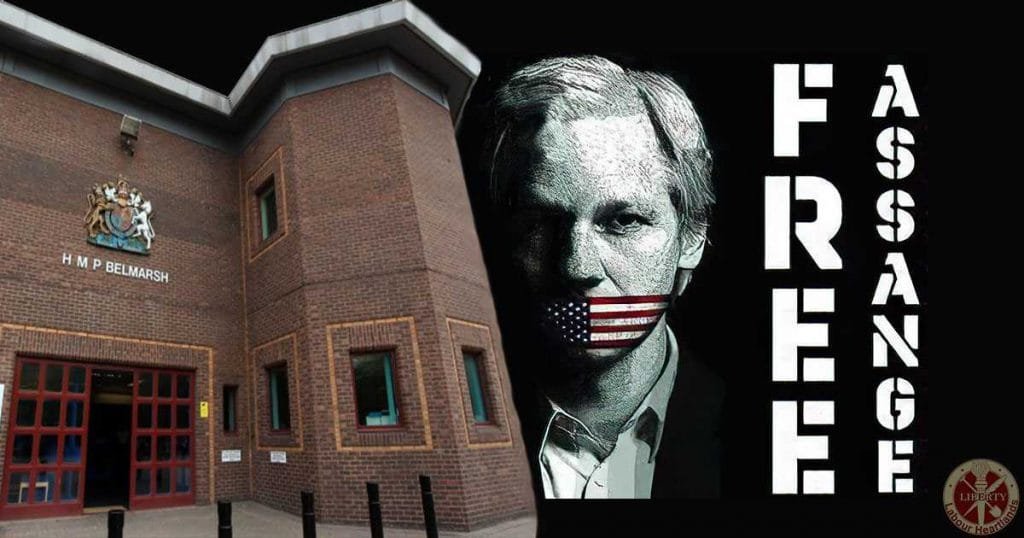
That notion has never been tested in court, however, because until now the government has never brought such charges.
Though he is not a conventional journalist, much of what Julian Assange does at WikiLeaks is difficult to distinguish in a legally meaningful way from what traditional news organisations like The Times do: seek and publish information that officials want to be secret, including classified national security matters, and take steps to protect the confidentiality of sources.
In the US, Assange could face trial on 18 charges – 17 of them under the USA’s Espionage Act, and one under the Computer Fraud and Abuse Act. He would also face a real risk of serious human rights violations, including detention conditions that could amount to torture or other ill-treatment, and the possibility of prolonged solitary confinement. Assange is the first publisher to face charges under the Espionage Act.
The fact that Assange was the target of a negative publicity campaign by US officials at the highest levels undermines his right to be presumed innocent and puts him at risk of an unfair trial.
JOHN F. KENNEDY finished his address with these words proclaiming…
“We are all citizens of the world”
It’s a shame the new age of America does not want to extend its First Amendment and its advocation for ‘freedom of speech’.
It was early in the Seventeenth Century that Francis Bacon remarked on three recent inventions already transforming the world: the compass, gunpowder and the printing press. Now the links between the nations first forged by the compass have made us all citizens of the world, the hopes and threats of one becoming the hopes and threats of us all. In that one world’s effort to live together, the evolution of gunpowder to its ultimate limit has warned mankind of the terrible consequences of failure.
And so it is to the printing press—to the recorder of man’s deeds, the keeper of his conscience, the courier of his news—that we look for strength and assistance, confident that with your help man will be what he was born to be: free and independent.
This article fetched extracts from:
WikiLeaks, Disclosure, Free Speech and Democracy: New Media and the Fourth Estate JENNIFER ROBINSON
Ken Loach calls out Sir Keir Starmer, what were his dealings in the Julian Assange case
Support Independent Journalism Today
Our unwavering dedication is to provide you with unbiased news, diverse perspectives, and insightful opinions. We're on a mission to ensure that those in positions of power are held accountable for their actions, but we can't do it alone. Labour Heartlands is primarily funded by me, Paul Knaggs, and by the generous contributions of readers like you. Your donations keep us going and help us uphold the principles of independent journalism. Join us in our quest for truth, transparency, and accountability – donate today and be a part of our mission!
Like everyone else, we're facing challenges, and we need your help to stay online and continue providing crucial journalism. Every contribution, no matter how small, goes a long way in helping us thrive. By becoming one of our donors, you become a vital part of our mission to uncover the truth and uphold the values of democracy.
While we maintain our independence from political affiliations, we stand united against corruption, injustice, and the erosion of free speech, truth, and democracy. We believe in the power of accurate information in a democracy, and we consider facts non-negotiable.
Your support, no matter the amount, can make a significant impact. Together, we can make a difference and continue our journey toward a more informed and just society.
Thank you for supporting Labour Heartlands
